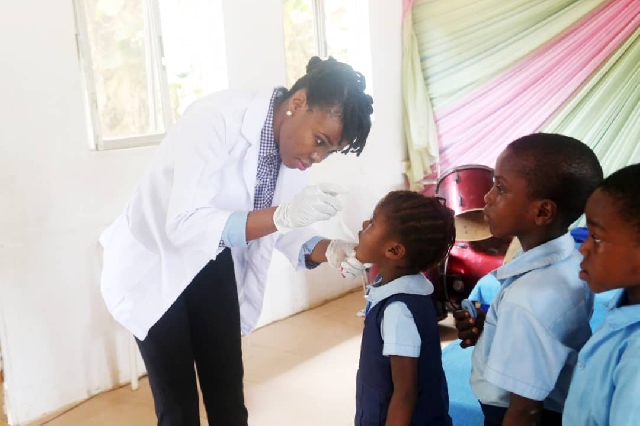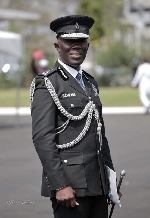Over 2 million Ghanaian children targeted in nationwide deworming campaign
 Scholl children under going deworming execise
Scholl children under going deworming execise
The Ghana Health Service (GHS) and the Ghana Education Service (GES) are set to embark on the 2024 National School and Community Deworming Exercise, targeting more than two million school-age children across Ghana.
The week-long campaign, scheduled from Monday, October 28, to Sunday, November 3, aims to improve the health and immunity of children aged five to 14 by eliminating schistosomiasis and controlling soil-transmitted helminth (STH) infections.
An estimated 2.6 million children in both public and private schools across 100 districts in 15 regions will receive the treatment, along with an additional 1.6 million community-based children and adults in 57 districts within 11 regions.
Dr. Patrick Kuma-Aboagye, the Director-General of GHS, announced the campaign at a recent media briefing, emphasizing the importance of administering 600mg praziquantel and 400mg albendazole to eligible children. These medications, donated by the World Health Organisation (WHO), will be distributed under the strict supervision of trained school teachers and health workers.
Dr. Kuma-Aboagye advised that children should eat before taking the medicine to enhance its absorption, encouraging parents and caregivers to ensure their children are well-fed before school.
“The medicines should ideally be administered immediately after the first break or after children have been served food, so all children should have eaten before taking them,” he said.
Schistosomiasis, a parasitic infection common in areas with limited sanitation, primarily affects children who are exposed to contaminated freshwater.
Symptoms can include abdominal pain, diarrhoea, anaemia, and, in severe cases, liver damage, infertility, and menstrual disorders.
The nationwide prevalence of schistosomiasis in Ghana is estimated at 23.3%, with some areas exceeding a 50% infection rate.
Soil-transmitted helminth infections, prevalent in areas with poor sanitation, also cause significant health issues, such as malnutrition, impaired development, and reduced cognitive performance in children.
Highlighting the importance of raising public awareness, Dr. Franklin Asiedu-Bekoe, Director of Public Health at GHS, urged the media to educate the public on the health benefits of the deworming exercise.
Theresa Oppong-Mensah, Director of the GES School Health Education Programme, assured that schools are prepared for the initiative, with support from the Ghana School Feeding Programme to ensure adequate food supply on the day of the medicine administration.
Representing the USAID Act to End NTDs Programme, Irene Dzathor reaffirmed the agency’s commitment to combat neglected tropical diseases in Ghana, and Dr. Joseph Opare, Programme Manager of Neglected Tropical Diseases, was also present to support the campaign.
Source: Classfmonline.com/Cecil Mensah
Trending News

Dec. 7 polls: IGP to share 'consumable' bits of 5k-page security deployment plan with CSOs, media, public soon
23:34
Kufour’s accessment of Bawumia’s achievements faulty – Ohene Ntow
12:51
Ablakwa calls for independent investigation over expired Free SHS rice saga
03:05
Opoku-Agyemang calls out Akufo-Addo for priotizing statue over welfare of Ghanaians
09:45
NE/R: Bawumia to commission factory, mosque in Walewale on Nov. 22
21:05
Peter Kwakye-Ackah withdraws independent candidature from parliamentary race
09:48
NDC emphasises respect for former president John Agyekum Kufour
10:22
'The president is the government, everyone else is just an advisor' – Kufour asserts
13:37
Titus Glover: Minister descends on hawkers occupying Flower Pot interchange against his word
20:24
How well does Kufour know Bawumia's achievemens – Angry Alan roars
12:51



